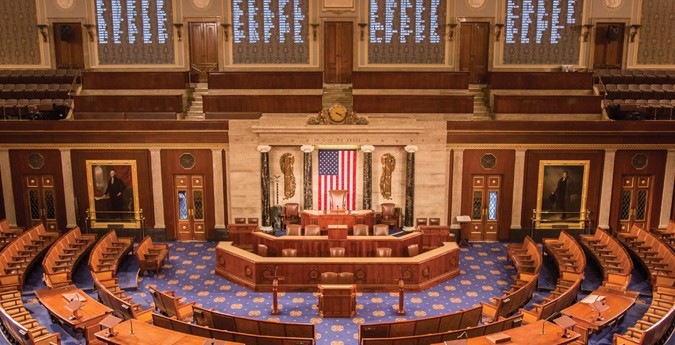Over the last week the issue of public access to non-confidential CRS reports has come into focus. A grassroots effort has sent hundreds of emails from constituents to select Members of Congress over the last two weeks. Transparency organizations and former CRS employees called for public access. A panel of experts met to discuss the issue on Capitol Hill. And there have been a handful of news stories. I thought it might be helpful to round-up all that information.
We expect this issue will continue to be in the news, especially with all the changes contemplated at the Library of Congress. To be clear, we are advocating comprehensive public access to non-confidential CRS reports, addressing the serious issue of inequitable access by lobbyists and special interests when compared to the general public. We are not calling for public access to confidential memoranda or advice.
Last Thursday, the Congressional Transparency Caucus convened a discussion on public access. A panel addressed why non-confidential CRS reports should be publicly available; the legal and constitutional issues; the policy issues; and the CRS perspective. Video is available here. Participants included former Rep. Chris Shays (R-CT), Stan Brand, Kevin Kosar, Prue Adler, and me as moderator. Reps. Leonard Lance (R-NJ) and Mike Quigley (D-IL) both spoke; they have introduced House Resolution 34 in support of public access.
Also on Thursday, 22 former CRS employees with more than a collective 500-year tenure at the agency released this letter calling for public access. On average, each employee was with CRS for more than 25 years.
In late August, a coalition of more than 41 organizations called for public access to the non-confidential reports and rebutted any concerns with their release (see appendix).
In addition to this favorable New York Times editorial, and op-ed by Reps. Lance and Quigley, several news stories have come out recently.
- Today, in a well-rounded article, Politico’s Darren Samuelsohn wrote “The publicly funded reports you can’t read.”
- Last week, Roll Call’s indefatigable Hannah Hess wrote “Congress’ selfish reason for not sharing CRS reports.”
- Yesterday the Washington Post had “Trying to crack open Congress’s confidential think tank after a century of secrecy”, although reporting from earlier this year was more precise.
- The Free Beacon described the legislative effort back in June.
- Kevin Kosar has a lighthearted look at “15 reasons CRS reports should be public.”
- And Hannah Hess dug in and reported on Member opinions and the underlying policy questions back in July in Roll Call.
Public access is a bipartisan issue everyone can support. We believe in a strong CRS that serves Congress, and Congress’ interests are helped by ensuring the non-confidential reports — not the memos or advice — are available to the general public.
More Resources
- Backgrounder: H. Res. 34, amendment on the list of reports, and more
- Compendium of info about CRS compiled by me
- Compendium of info about CRS compiled by Steve Aftergood
- “Why I Quit the Congressional Research Service” by Kevin Kosar (Washington Monthly)
- 15 Reasons CRS Reports Should be Public, by Kevin Kosar
- 40+ organizations call for public access to non-confidential CRS reports, rebut commonly raised arguments (blog)
Member Statements
Candice Miller, Chair, Committee on House Administration
Across the Capitol, House Administration Committee Chairwoman Candice Miller (R-Mich.), who has primary jurisdiction over the CRS, said in an interview that she’s been sidetracked this year by other issues but promised she’d give the legislation her attention soon. “I’ll take a look at it. I know there’s been a lot of talk about that over the years. There might be some of those reports that could be [released]. Others maybe not,” she said. — 10/29/2015, quoted in Politico.
Roy Blunt, Chair, Senate Rules Committee
“I’ve never understood why those couldn’t be available to the public and I’m interested in looking at that,” said Sen. Roy Blunt, R-Mo., who was handed the gavel on the Senate Rules panel in January, and also serves as chairman of the Joint Committee on the Library. — 7/14/2015, quoted in Roll Call.
Gregg Harper, Vice Chair, Joint Committee on the Library “You could argue that both ways, and so I want to make sure that we give that a proper study, so we haven’t made a 100 percent decision on what works best,” Harper said. “You want to make sure they can speak openly and we can get the information we need. Now, do you want to release that to the public? That’s something that we’re still trying to work through.” — 7/14/2015, quoted in Roll Call.
— Written by Daniel Schuman


